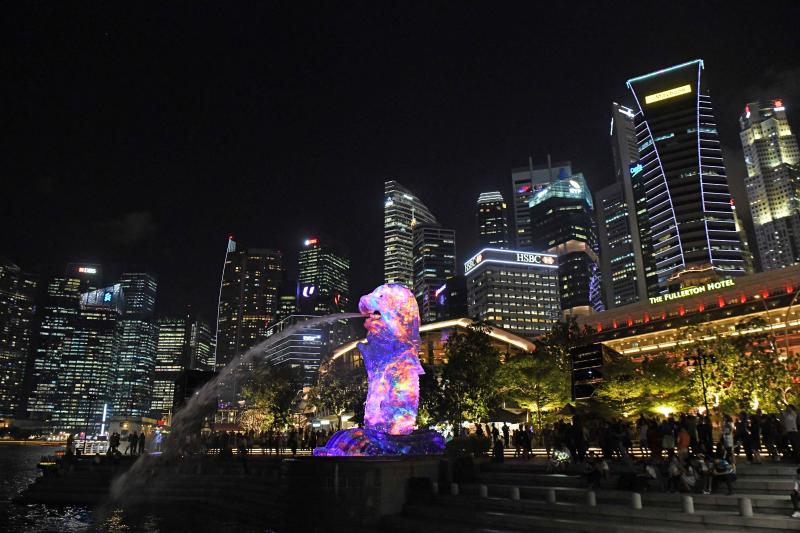Public service to go from 'whole-of-Government' to 'whole-of-nation'
Sign up now: Get ST's newsletters delivered to your inbox

Minister-in-charge of the Public Service Chan Chun Sing said the Public Service Division will continue to invest in and develop engineers, to develop Singapore's city infrastructure.
PHOTO: AFP
Yasmine Yahya
Follow topic:
SINGAPORE - Singapore's public service agencies will go beyond a "whole-of-Government" approach to adopt a "whole-of-nation" effort, by partnering business, citizens and other stakeholders to develop better solutions together.
Minister-in-charge of the Public Service Chan Chun Sing said this in the Public Service Division's (PSD) addendum to the President's Address, released on Wednesday (May 9).
He said the PSD, a unit of the Prime Minister's Office (PMO), will continue to actively reach out to others, whether overseas or in the private sector, to hear their views, learn from their successes and failures, and improve itself along the way.
Explaining what the new "whole-of-nation" approach could entail, political observer Lam Peng Er said: "It will be a more participatory process."
He added: "A whole-of-government approach is one that would be state-driven while a whole-of-nation approach... will be more of a partnership between the Government and different segments of society."
Mr Chan, who is also Trade and Industry Minister, wrote: "We will champion innovation and test-bed new ideas. We will respond quickly to issues on digital technologies as an enabler."
He said the PSD will continue to invest in and develop engineers, to develop Singapore's city infrastructure. It will also boost its expertise in infocomm technology to build a Smart Nation and digital government.
"We are training public officers in data analytics and digital literacy, so as to better understand citizens' needs and improve public services," he said.
All public-sector agencies are developing plans to transform their operations and services, he added, for example, by grouping services provided by different agencies together, to better serve citizens at key moments in their lives.
Four other ministries and agencies released their addenda on Wednesday - the Finance Ministry, the Law Ministry, and the Strategy Group and Smart Nation and Digital Government Group within PMO. The theme for their addenda was "A Government that Works with Our People to Create a Better Future".
Deputy Prime Minister Teo Chee Hean oversees the Strategy Group, which coordinates and organises the public service to implement the Government's strategic projects.
Mr Teo said the Strategy Group will focus on three broad strategies to maintain a population profile that improves the lives of each generation.
First, it will develop and implement policies to enable all Singaporeans to age with purpose and dignity.
Second, it will make Singapore a great place for families, where marriage and parenthood are achievable, enjoyable and celebrated.
Third, it will maintain a careful balance in the foreign worker and immigrant flows.
In his ministry's addendum, Finance Minister Heng Swee Keat outlined the Government's plans to maintain a sound and sustainable fiscal system and a balanced budget over the medium term.
He noted Singapore's rising expenditures, especially in healthcare, infrastructure and security, and pointed to changes around the globe, such as reductions in corporate taxes in other countries that could hurt Singapore's competitiveness.
"This is why we are taking steps to strengthen our revenue position, including through an increase in the goods and services tax," he said.
"As we build up our revenues, we will ensure that taxes remain competitive to encourage private enterprise and individual initiative. We will continue to keep our overall tax and transfer system equitable, fair and progressive."
He added that the Government will manage its expenditure growth carefully, explore new funding approaches for large-scale infrastructure investments and be good stewards of the reserves.
Meanwhile, Law Minister K. Shanmugam said the Ministry of Law (MinLaw) will continue to review Singapore's laws, to ensure that they remain progressive, modern and relevant to the evolving needs of society.
For example, it is reviewing the Penal Code together with the Ministry of Home Affairs, with an eye to covering new offences, introducing measures to enhance protection for vulnerable victims and assess the adequacy of existing punishments for sexual offences.
MinLaw is also reviewing the framework of legal costs, enhancing judicial control in civil proceedings and studying measures to make it easier and more effective for plaintiffs to enforce judgments given in their favour.
At the same time, Mr Shanmugam said MinLaw will continue to drive Singapore's development as an international legal services hub, help legal professionals acquire expertise in new growth areas and assist them to access the opportunities afforded by the growth of Asia and Asean.
Another new area of growth is intellectual property (IP), Mr Shanmugam noted. MinLaw is reviewing Singapore's IP laws to keep pace with technology changes, strengthen IP protection and enable industry to tap on potential gains.

